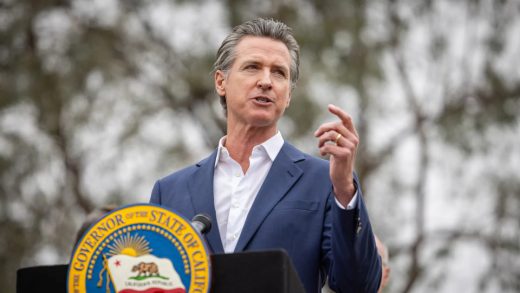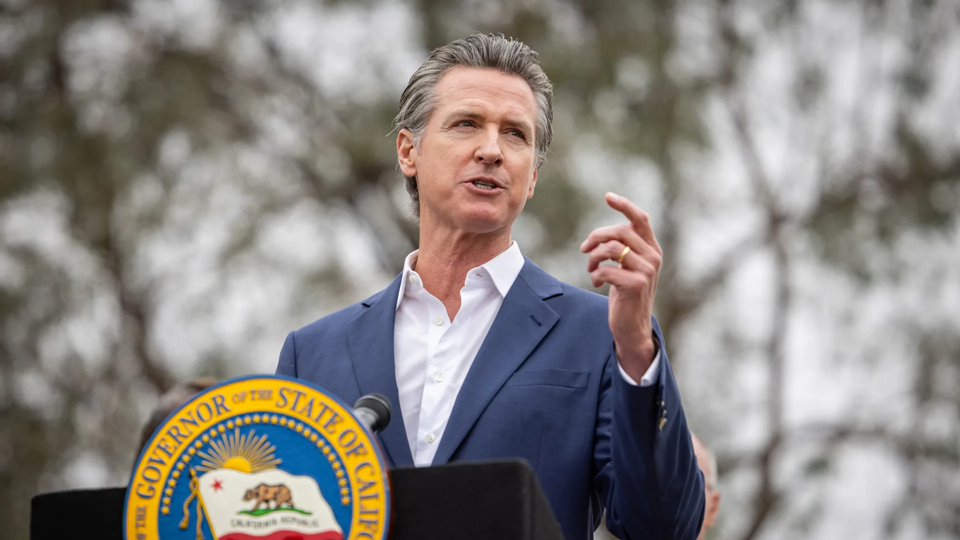California spiked a landmark AI regulation. But that doesn’t mean the bill is going away
California spiked a landmark AI regulation. But that doesn’t mean the bill is going away
State Senator Scott Wiener hasn’t ruled out the possibility of introducing the bill again next session.
With the veto of California’s AI bill, the idea of regulating frontier models may be in jeopardy.
The bill, SB 1047, would have required developers of the largest AI models (OpenAI, Anthropic, and the like) to set up and report on a safety framework, and submit to outside safety audits. The bill also included a whistleblower protection clause, and required developers to build a “kill switch” into models in case they began acting on their own in harmful ways.
Most of the tech industry came out against the bill, saying its passage would shift the focus from innovation to compliance in AI research. It’s worth noting, however, that much of the public supported the bill’s protections, as did a number of respected AI researchers.
Nonetheless, Governor Gavin Newsom vetoed the bill this week, saying it fails to assess the risk of AI models based on where and how they’re deployed. “Smaller, specialized models may emerge as equally or even more dangerous than the models targeted by SB 1047—at the potential expense of curtailing the very innovation that fuels advancement in favor of the public good,” Newsom wrote.
So, what comes next? SB 1047’s main author and champion, State Senator Scott Wiener, hasn’t ruled out the possibility of introducing the bill again in some form next session, a source close to the matter says. AI researcher Dan Hendrycks, who helped shape the bill, says his organization, the Center for AI Safety (CAIS), which sponsored SB 1047, intends to fight on.
“We’re taking some time to plan, to determine what’s next,” Hendrycks wrote in an email to Fast Company. “There has been a broad bipartisan coalition that came together to support this bill, so we’re incredibly optimistic about future opportunities to coauthor, advance, and advocate for sensible AI safety regulation.”
Time for working groups
One of Newsom’s main complaints about the bill was that it didn’t cover enough types of AI models and applications. As part of his veto, the governor called for the formation of a working group to develop a set of sensible guardrails for AI model developers, and potentially new legislation. The working group will be led by Stanford professor Fei Fei Li, a source with knowledge says. Li, who came out against SB 1047, is an AI pioneer best known for leading Stanford’s Human-Centered AI institute, but she also has a new AI company called World Labs, which is reportedly valued at $1 billion. One of her investors is Andreessen Horowitz, perhaps the loudest critic of SB 1047.
For its part, Andreessen Horowitz plans to hold “blueprint sessions” to help guide legislators in AI regulation. Wiener’s office says the senator has been invited to participate, but the two sides aren’t likely to find much common ground. Indeed, SB 1047’s proponents and critics have fundamentally different ideas on how to regulate AI safety.
Wiener’s bill sought to put regulatory oversight on the frontier models developed by labs like OpenAI and Anthropic. Wiener and his ilk reason that these huge models could potentially enable an AI app to cause catastrophic harms (shutting down the power grid, for example).
Andreessen Horowitz and others in the industry believe that regulation should not focus on the model’s capacity for causing catastrophic harms, but rather on the application that actually does a specific thing using the model. For example, if a frontier model-powered medical app causes deaths in a hospital, the app maker (sometimes called the “deployer”) would be held liable.
But Wiener’s staff points out that such an application-focused law would only be additive to tort liability that already exists in the law. There is no law in California, nor at the federal level, that mandates specific safety guardrails and transparency standards for companies developing frontier models.
SB 1047 and Congress
California Representative Anna Eshoo believes regulation should focus on requiring AI labs to be transparent about their models and their risks, not on prescribing specific safeguarding requirements and penalties for not using them, as SB 1047 does. Eshoo’s 2023 Foundation Model Transparency Act (with Virginia Democrat Don Beyer), which did not become law, required foundation model developers to disclose facts about training and training data to third-party app developers and the public.
A Washington source says SB 1047 wasn’t a major topic of conversation in the halls of Congress. And the lawmakers who were aware of it were mainly interested in how the legislation might integrate with a similar bill at the federal level.
Eshoo and three other California representatives sent a letter to Newsom urging him to veto SB 1047. The Congresswoman was concerned that the bill might stifle AI research at places like Stanford, which could affect the rest of the country.
Congress has grown more thoughtful about regulating AI, the aide says. When ChatGPT was released almost two years ago, many lawmakers rushed to get up to speed on generative AI and potential regulatory approaches. But that sense of urgency has faded with the realization that generative AI isn’t going to transform the world overnight. In fact, applying generative AI in useful ways has proved a slow and complex process for many organizations.
If AI is poised to change the world it’s just getting started. Not only is the research into frontier models pushing the state of the art forward quickly, but research into steering and safeguarding models is evolving rapidly too, explains Navrina Singh, CEO of the AI governance platform Credo AI. Asking lawmakers to prescriptively regulate something so fluid is asking a lot.
“The problem is, as the director of [National Institute of Standards and Technology] said recently, we don’t yet have a science of AI safety,” says Neil Chilson, former FTC chief technologist and current Head of AI Policy for the Abundance Institute, says in an email to Fast Company. Chilson says we don’t even understand the risks that safety guardrails should target. “[W]e lack good evidence on the risk profile of AI models or how to mitigate that risk, if any. Until we have more evidence, we simply don’t know if model-level regulation will help or hurt on net.”
Others believe that SB 1047’s focus on imposing safety guidelines was misguided. If lawmakers want to stop frontier models from enabling catastrophic harms, they should focus on transparency around the data used to train them, says Appian CEO Matt Calkins.
“AI is a function of its data,” he says. “If we don’t want a model to create a killer virus we have to make sure it’s not been trained on data explaining how to make a killer virus. You would prevent the usage of that gain-of-function data.”
ABOUT THE AUTHOR
(6)



